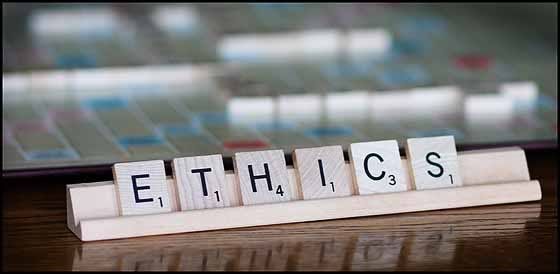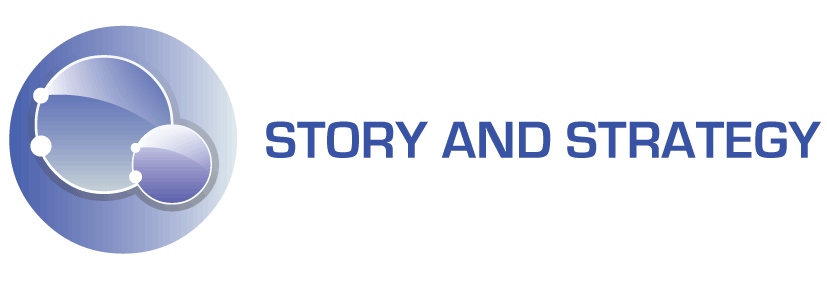Is it possible to impose ethics on the Internet?
Posted on

The last few weeks has seen a flurry of research, statements and calls for action aimed at trying to ‘clean up’ the Internet. But is this really possible, what would it look like and who should be responsible for making it happen?
Brands are working harder to burnish and share ethical credentials pressured by increasingly aware and demanding consumers. But the one area that perhaps touches the most individuals, the Internet, seems increasingly to behind the times when it comes to creating belief and support as an ethical endeavour.
The last week saw not only an unprecedented raid by the UK Parliament on documents relating to alleged cover-ups by Facebook relating to the Cambridge Analytica affair, but also calls from activist investors to force Silicon Valley leaders to share fairer voting rights. This on-top of the wide-ranging slide in share prices of so called FAANGs stocks and more revelations about Facebook’s questionable PR tactics. So how have Internet companies got it so wrong?
The Internet is often likened to the Wild West – a lawless free for all that is nonetheless fertile ground for innovation, expansion and creativity. Perhaps a more precise analogy is the expansion of the railways across the USA at that time. Risk-taking industrialists invested and created not only an innovative communications system, but lay the foundations for hundreds of new ventures, a new capitalist-mercantilist economy and hundreds of new towns and markets. These tycoons often operated at the very edge of the law, and the ethics of what they did, and how they did it, are certainly questionable by our standards today. Similarly, the settlements, businesses, markets and opportunities created along their routes were open to exploitation. Good and bad thrived in these new ecosystems.
Over time, governments regulated and legislated to rein-in the excesses of the railway tycoons, and civil society re-defined acceptable behaviours and expectations on the towns and populations defining both protection and responsibilities for all. Can the same evolution be expected for the Internet?
Earlier this month, speaking at the UN’s Internet Governance Forum (IGF), President Macron of France seemed to suggest that a degree of top-down imposition is needed to help the Internet evolve beyond this Wild West phase. He suggested that an overly liberal approach had allowed the Internet to become too wild and unmanageable: "In the name of liberty we've allowed the enemies of liberty to gain prominence casting away everything we've fought long and hard for," he argued. Instead, he said: "We want our values upheld on the internet."
Recently, none other than the ‘Father of the Web’ Tim Berners-Lee also published a call for commitment to more responsible management of the Internet. The Case For The Web, a report published on 3rd November by the Web Foundation, characterises the current situation as a battle for the heart and soul of the Web, suggesting that “[the] current trends that threaten its future, and outlines actions we must take to reverse these trends and ensure that the web remains free and open for everyone.”
Both statements, and others relating to them, have seen push back from both sides of the internet community. Those who are against any intervention that potentially damages the open, free-speech centric view of the Web, and those that feel corporate powers already have too much control over what we see online.
Different examples of what the Internet could become already exist. China is very effective at managing what is accessible and what its citizens can say and do online. And the so-called ‘Dark web’ is an anything-goes capitalist dystopia. However, few would want either to become the model for protecting our values online. Yet, as recent news and commentary highlight, we are also becoming wary of allowing large commercial organisations becoming the gatekeepers of how we experience the internet either. So how should we create a more ethical web?
To solve this puzzle the Internet community, by which I mean providers, regulators and users, need to get better at three things.
Awareness. The internet is easy to use, but hard to master. For too long digital skills training has focused on the mechanics of using the internet, the basics of getting online, browsing and using web-based tools and services. What has never effectively been taught is the ethics. How to protect yourself, how to act, the impact and implications of the decisions made online. For too many people these are divorced from the real world and therefore the norms of behaviour and cultural expectations that moderate our actions offline. Much more must be done, by governments and by businesses, to close this gap.
Choice. The GDPR regulation has been hailed as a significant step forward in enforcing the rights of the individual online. However, it will only be effective if people have a choice of providers. Active encouragement through investment, regulation and communication is needed to stimulate alternative providers and business models that provide consumers with other options. If they want to trade personal data for free services they can, but they should also be able to opt for alternative that have other ways of exchanging value. Regulators need to ensure that these new models have the opportunity to flourish.
Mutualism. Macron called for a more multi-stakeholder approach to Internet governance and whilst vested interests will fight this it does seem fairer than allowing decisions that affect potentially billions of people worldwide to be made by a small number of commercial organisations plus several key governments. It is a utopian view, but a higher level of discourse, openness and collaboration could help solve many of the Internet’s current issues.
The tide is already turning. Informed audiences are becoming more vocal and helping the mainstream to align behind calls for more choice, better regulation and more transparency in the online would just as in the offline. Governments, quangos and regulators need to ensure that choices and ‘rights’ exist, are upheld and widely communicated. And internet businesses need to ensure that they are acting ethically and in line with the expectations of their customers. They need to demonstrate this and communicate this consistently as the core of their brand. The wild west era must come to an end, if we don’t want a police state we need to create, communicate and abide by ethical standards now.

Add a comment: